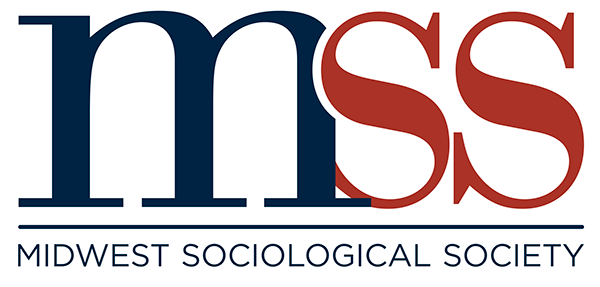- Home
- Join/Renew
- MSS Community
- Annual Meeting
- Publications/Awards
- Students
- About Us
MSS Code of EthicsGeneral Principles Mirroring the American Sociological Association Code of Ethics, the Midwest Sociological Society Code of Ethics (hereafter "Code") establishes the principles and ethical standards that guide the Society's membership. This Code is a guideline and baseline for examining the professional activities of MSS members. These guidelines require MSS members and leaders to be honest and respectful of others in their professional activities. The Code also recognizes that MSS members need to adhere to the high standards of collegiality. Members of the MSS strive to eliminate bias in their professional activities, and they do not tolerate any forms of discrimination based on age, gender, race, socioeconomic status or origin, ethnicity, nationality, religion, sexual orientation, gender, gender identity, gender expression, disability, health conditions, political affiliation, marital status, domestic status, parental status, or any other applicable basis proscribed by law. As a regional association, we place value on dismantling power inequalities. We engage and respect diverse experiences through all our programmatic activities and in the business of the Society. Our commitment to these principles extends to the following areas and situations: 1. Conduct at the Annual Meeting The MSS is committed to providing a safe, harassment-free, hospitable, and productive meeting environment for everyone attending our events regardless of race, gender, gender identity, gender expression, sexual orientation, ability, ethnicity, socioeconomic status, age, religion, or belief. This policy refers to anyone present at any MSS programs, meetings, or other sponsored events, including contractors, vendors, exhibitors, venue staff, MSS members, and all other participants. 3. Discrimination Sociologists do not engage in discrimination in their work (including research, teaching, hiring, promotion, compensation, treatment, or any other conditions of employment or career development) based on age, gender, gender identity, gender expression, race, socioeconomic status or origin, ethnicity, national origin, religion, sexual orientation, gender identity, gender expression, disability, health conditions, political affiliation, marital status, domes2c status, parental status, or any other applicable basis proscribed by law. 4. Exploitation Whether for personal, economic, or professional advantage, sociologists will not exploit persons over whom they have direct or indirect supervisory, evaluative, or other authority such as students, supervisees, employees, or research participants. Members of the MSS should not have a sexual relationship with anyone they directly supervise or exercise evaluative authority over, including students, supervisees, employees, or research participants. 5. Harassment MSS members will not engage in harassment of any person, including colleagues, students, supervisees, employees, staff, or research participants. Harassment consists of a single intense and severe act or multiple persistent acts, any of which are demeaning, abusive, offensive, or create a hostile professional or workplace environment. Harassment may include unnecessary, exaggerated, or unwarranted scrutiny or aPack, whether verbal or non-verbal. Sexual harassment may include unwanted sexual solicitation, physical advance, or verbal or non-verbal conduct that is sexual in nature. Acts of harassment can be based on age, race, socioeconomic status and socioeconomic origins, ethnicity, national origin, religion, sexual orientation, gender, gender identity, gender expression, disability, health conditions, political affiliation, marital status, domes2c status, parental status, or any other applicable basis proscribed by law. Instances of harassment include: (1) Threats or actions that cause or threaten professional harm, punishment or retaliation (2) Intimidating, harassing, abusive, derogatory or demeaning speech or actions (3) Prejudicial actions or comments that coerce others or otherwise undermine professional equity or free academic exchange (4) Unwelcome solicitation of emotional or physical intimacy (5) Deliberate intimidation, stalking, or nonconsensual photography or recording (6) Sustained, unprofessional disruption of talks or other events 6. Conflicts of Interest Conflicts of interest arise when MSS members’ personal or financial interests prevent them from performing their professional work in an unbiased manner. Because members’ scholarly and professional judgments and actions may affect the lives of others, they are alert to and guard against conflicts of interest or apparent conflicts of interest based on personal, financial, social, organizational, or political factors that might lead them to misuse their knowledge, expertise, or influence. If an MSS member discovers a conflict of interest that impacts their judgment or actions, they must withdraw from the professional activity or take other reasonable steps to mi2gate the effects of the conflict. Relatedly, MSS members should disclose all relevant sources of financial support for their professional and scholarly activities to employers, clients, sponsors, publishers, and the public. Sociologists also disclose other relevant personal or professional relationships that may have the appearance of or potential for a conflict of interest. Members of the organization need to comply with all applicable institutional and governmental conflict of interest policies and disclosure rules. Once disclosed, such conflicts should be managed in ways that are appropriate to the situation. If such conflicts cannot be managed in a manner that avoids impact of the conflict on the activity being undertaken, the activity should not be undertaken. 7. Professional Integrity Representation of Expertise
Plagiarism
Complaint Procedures Complaints alleging discrimination, harassment, or other viola2ons of the Code will be investigated promptly by the MSS Executive Committee. Any MSS member who, after an investigation, is found to have engaged in behavior that violates the Code is subject to correctional measures as determined by Executive Committee. Investigations will be handled as confidentially as possible in order to conduct a thorough investigation. In the event that someone raises an ethical concern about an MSS member that is not covered in the Code, the Executive Committee will defer to the ASA Code of Ethics for further guidance.
|
